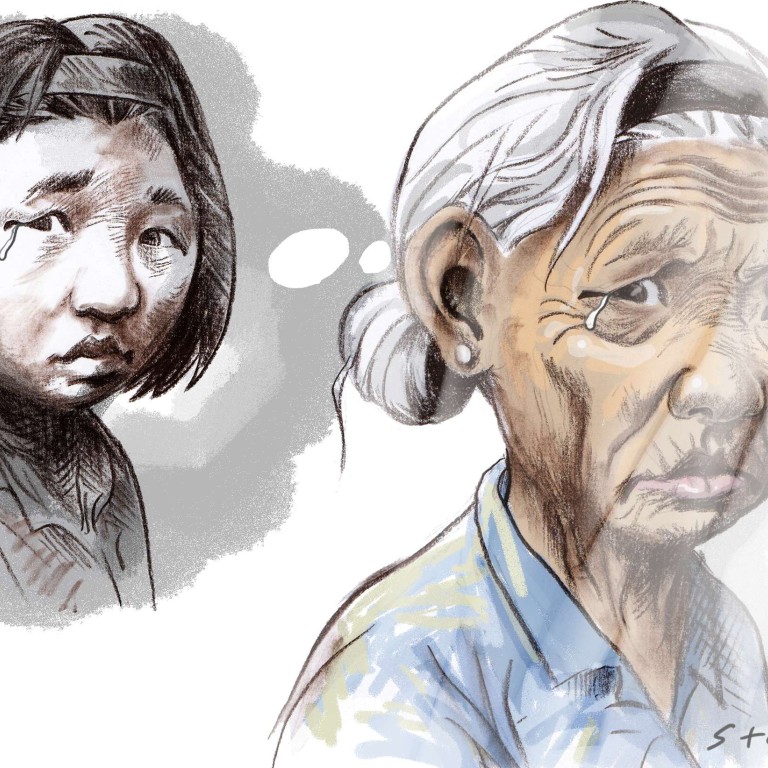
Reconciliation cannot wait for the ‘comfort women’ victims of wartime Japan
Sylvia Yu Friedman says an unsatisfactory Korea-Japan deal on resolving the painful past must be renegotiated – this time with the participation of all involved – so that those suffering can finally find closure
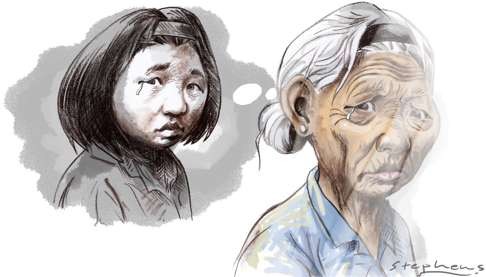
Long-overdue ‘comfort women’ agreement between Japan and South Korea will enhance regional security
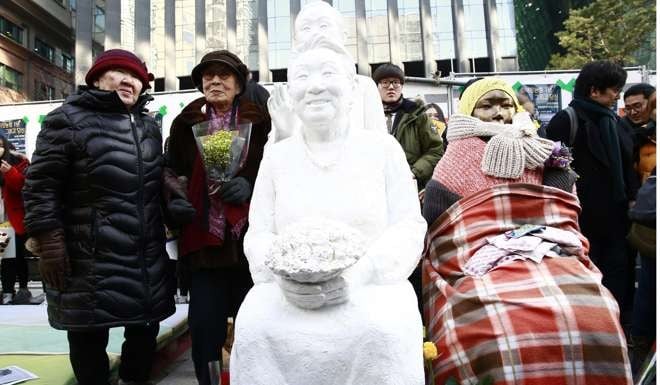
South Korean ‘comfort women’ continue to fight sex slavery accord with Japan
Since 2001, I have interviewed dozens of survivors like 80-year-old Kim Soon-duk, who was 16 when she was forced into sex slavery by the Japanese government and military. About 200,000 women and girls as young as 11 were trafficked and forced into sexual slavery, euphemistically called “comfort women” because their role was to “comfort” the soldiers on the front lines. Women were also trafficked from nations considered “racially inferior”, including China, Malaysia, Myanmar, the Philippines, East Timor, Singapore and France’s former colonies in Vietnam. There were more than 1,000 “comfort” stations in China and at least four documented military brothels in Hong Kong – at St John’s Cathedral, St Stephen’s Girls’ College, and two locations in Wan Chai’s red-light district.
Japan’s latest apology to ‘comfort women’ just empty words without a full admission of responsibility
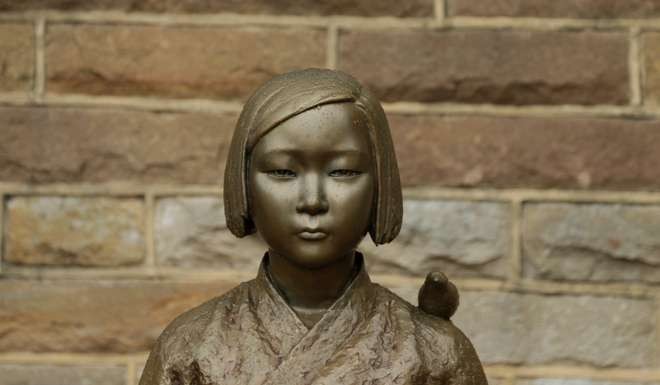
One possible solution to this stand-off is grass-roots reconciliation. In 2012, I documented a group of courageous Japanese people who personally apologised to survivors in Shanxi (山西) province. Tomoko Hasegawa, the co-leader of the Healing River-Rainbow Bridge, said their simple apologies brought powerful healing to the women. “We need to acknowledge the truth of what happened in history to these sex slaves and honour the victims,” she said.
They wept with the women, and bowed in humility on the ground, sometimes in public spaces
Hasegawa’s Christian group travelled to Shanxi over several years with gifts in tow; they sang and danced and presented calligraphy of a poem that promoted healing and reconciliation for Japanese atrocities during the war. They wept with the women, and bowed in humility on the ground, sometimes in public spaces. They held a sign in public that said they were apologising on behalf of the Japanese for war crimes and the suffering caused. Several people wept openly at the sight of these Japanese asking for forgiveness.
Kan Chui Mai, a Singaporean based in Lanzhou (蘭州), Gansu (甘肅), and a coordinator of the activities in China, said that wartime atrocities have led to racial hatred among the Chinese towards the Japanese. Her vision was to continue the reconciliation work so that healing may be extended to not just the survivors themselves but also their children and grandchildren, and future generations in China, Japan and Korea.
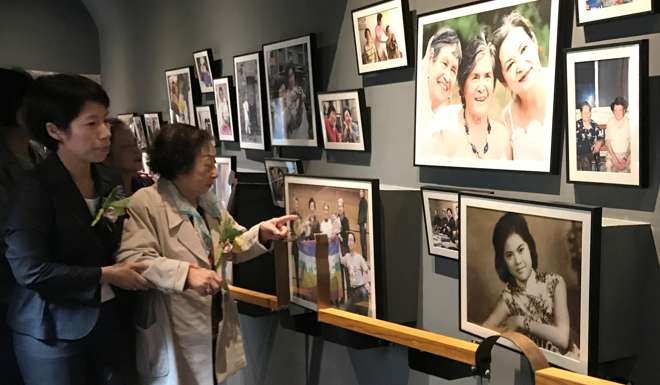
Japan’s deal on ‘comfort women’ stills lacks one crucial element – a heartfelt apology to all Asians
While working in China, every week I’d ask several Chinese about their thoughts on the Japanese. Almost everyone from all walks of life and ages harboured deep resentment towards the Japanese for their wartime atrocities, pointing to the sexual slavery and the slaughter of 300,000 civilians during the rape of Nanking.
A forum is also needed to try and resolve anger and hatred towards the Japanese. Unless this is done, such feelings will be passed down from generation to generation
Another way forward is to convene a conference with representatives from all the affected countries. As many survivors as possible and their children should attend. Representatives should include government officials, human rights activists and scholars. The goal would be to come up with a practical, sincere apology and proper restitution once and for all. For this to be acceptable to everyone, the process and the outcome must be transparent and open, and not intended to shame or condemn the Japanese government or people. It is necessary to allow the world to see that the errors of the past must be acknowledged and safeguards put in place to ensure government-sanctioned and managed military sex slavery never happen again.
A forum is also needed to try and resolve anger and hatred towards the Japanese. Unless this is done, such feelings will be passed down from generation to generation. A sincere, compassionate apology given to these women would help – it would show the world that the Japanese understood they had hurt others, and were willing to take responsibility for their actions.
Apologies from the Canadian authorities have brought a level of healing to groups that suffered discrimination in history, including Japanese Canadians interned during the second world war and Chinese immigrants discriminated against with a head tax.
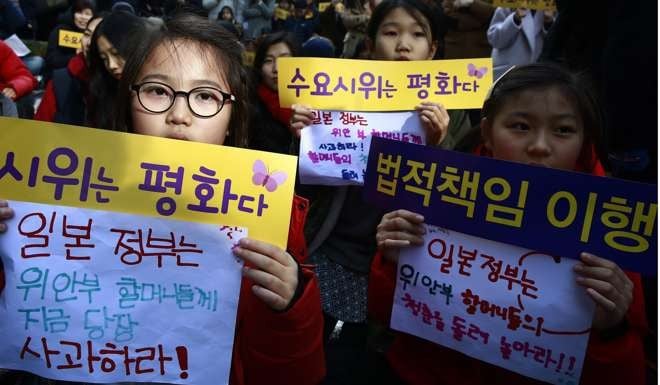
Learn from the past to build a better world, ‘comfort women’ historian urges young Chinese
Future generations must also learn about the comfort women – the largest sex trafficking ring in history – in their school curriculums, so that such misery is never repeated. A closure is urgently needed for all those involved, for both victims and perpetrators, as well as the nations involved. It is time to do the right thing to bring an end to this tragic chapter of history.
Sylvia Yu Friedman is a Canadian journalist in Hong Kong and author of Silenced No More: Voices of Comfort Women
